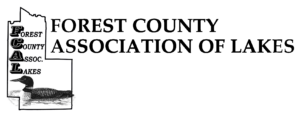A recent article shared by John A. Preuss, Lumberjack Aquatic Invasives Coordinator for Lincoln, Langlade and Forest Counties:
Yard MD blog: Warning! Garden centers are selling invasive shrub
Avoid purchasing and planting Scotch Broom
May 5, 2014 |
Post-Crescent Media
Source: Yard Md Blog

Scotch Broom is considered invasive and ‘prohibited’ in Wisconsin by the state DNR, but that hasn’t stopped some local garden centers from offering it for sale. Be informed and stay away from this plant. Photo courtesy of the Wisconsin Department of Natural Resources. / Submitted
This spring, a few large retail garden centers in our area are offering a known invasive plant, Scotch Broom, for sale. The plant, known by the Latin name Cytisus scoparius, is considered potentially highly invasive in Wisconsin, and is considered “prohibited” by the Wisconsin Department of Natural Resources.
Avoid purchasing and planting this invasive shrub.
Large retail garden centers selling such an invasive shrub in our area should not be tolerated. The sheer number of plants these businesses can move is frightening, and each shrub can produce hundreds or thousands more by seed.
Scotch Broom is a medium to large shrub that can grow from 3-12 feet high and features yellow to reddish pea-like flowers along its unusually textured branches. It is this unusual beauty that makes it such an attractive buy to consumers, who are not familiar with its classification as invasive.
Unfortunately, this is how invasive plants gain their foothold on North American soils, anxious gardeners looking for something new and different. This is exactly how buckthorn got its start in our area. Despite our good intentions, plants never stay in one place. Birds eat the seeds, and well, we know what birds do with them. In addition, birds fly, meaning they can “drop” off those seeds many miles from the original plant.
The good news is, Scotch Broom may not be entirely winter hardy in our area, meaning its spread could be slowed. In the southern part of the state, however, the plant is gaining a stronghold.
It is likely that there are several unrelated types of plants that go by the name Scotch Broom, so be sure to keep the Latin name handy and watch for this label on plant tags.
Scotch Broom is found in sandy and dry areas such as dunes, beaches, roadsides and pasture areas, where it can spread rapidly. Disturbance to the soil, such as plowing and grading, creates ample opportunity for the plant to spread.
We cannot afford another buckthorn-like invasion across the Wisconsin countryside.
Please do your part and refuse to purchase these plants, despite their beauty and your good intentions.
